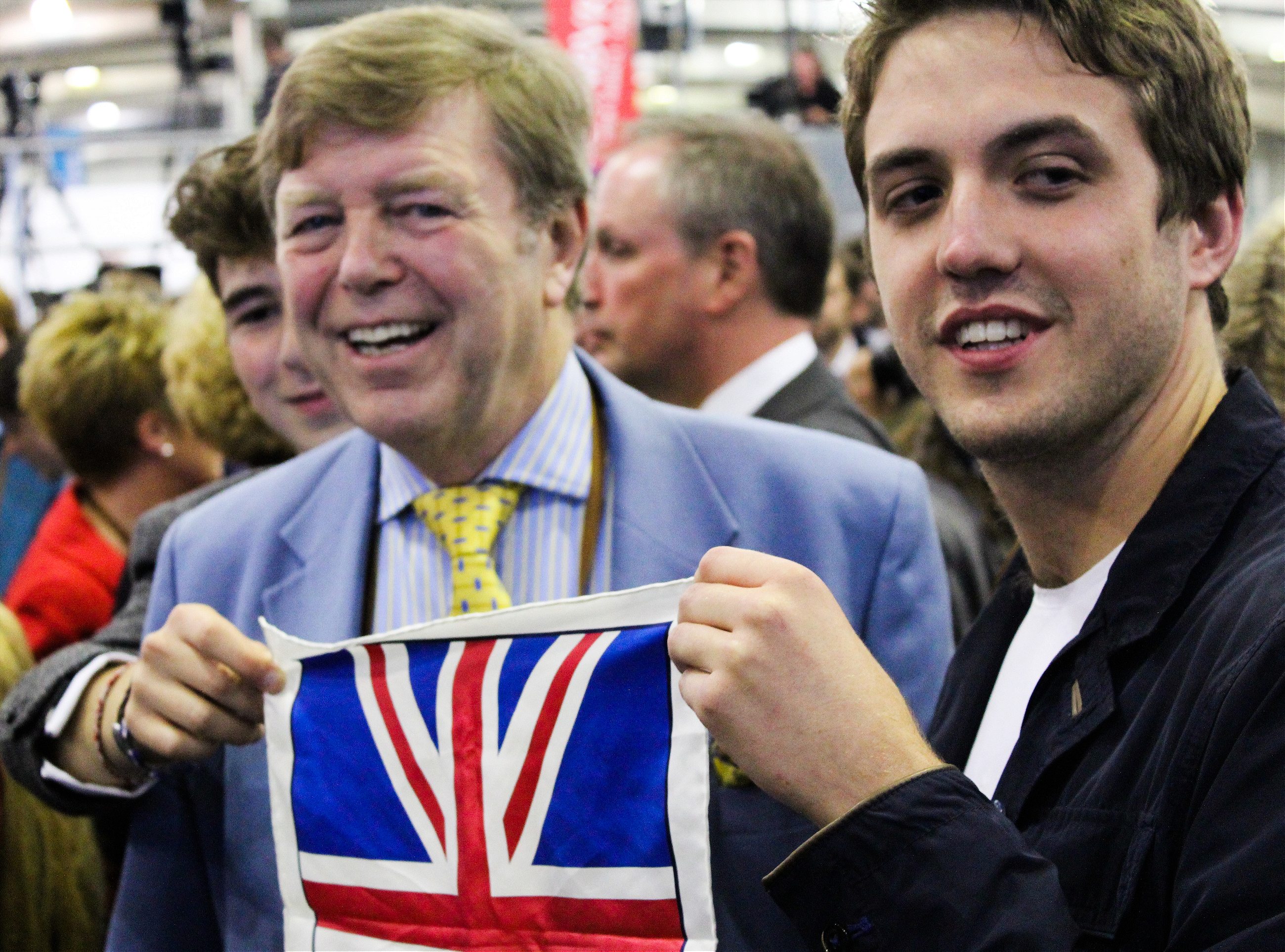You’ve heard Scotland decided to stay with the UK. But have you heard of the Scots who want to join Scandinavia?
As I stepped off the ferry, Orkney seemed quiet. Too quiet, considering the swirl of political drama that enveloped the remote archipelago. With two weeks to go before the Scottish independence referendum, a so-called “micro-nationalist” movement had grown in the islands, demanding sovereignty for Shetland and Orkney as well. Earlier in the summer, a petition had been filed with the Scottish Parliament for another referendum—originally slated to be held on September 25—on the islands’ future: specifically, whether they should leave Scotland and the UK both. Even the local councils were jumping into the fight, forming a cross-island organization to lobby London and Edinburgh, regardless of the referendum outcome. To an incoming journalist, ready to find throngs of agitated activists marching through the cobbled streets, the silence was deafening.
My first stop was the tiny island of Wyre, a plot barely larger than one square mile, lying north of the mainland. It was here, in the mid-1980s, that the Declaration of Wyre was penned by John Goodlad and Margaret Flaws, a document that can help to illuminate today’s complex web of overlapping cries for independence.
Despite its humble island origins, the Declaration was grandiose and unforgiving in its language and purpose: a plea to the kingdoms of Denmark and Norway to “safeguard our laws, rights and traditions until such a time as our constitutional status is resolved.” The entire undertaking—from the mist-shrouded isle to the bold and imploring tone—had all the trappings of a high political drama, as if the letter were written under severe duress. It called on a former ruler to once again protect the islands—Norwegian Earls were lords of the isles for six hundred years. It gained signatures from across the islands’ patchwork of towns. The authors even flew to Denmark to personally deliver the letter, like lesser lords bending a knee to the crown. So when I reached John Goodlad by phone (he was away captaining a 110 year-old wooden sailboat when I got to the islands, fittingly) I wasn’t expecting the chuckle that emanated from the other end of the line: “Aw, to be honest, that really was just a bit of fun.”
He said it with the same tone you might use to describe a night out singing drunken karaoke, or a casual prank. For some reason, I had pictured it being written by candlelight. On a cracked, yellow scroll. Maybe with a quill, dipped in dwindling ink.
But despite its jocular origins, the Declaration became a rallying point for Goodlad’s small band of activists, who began to make serious progress in the arduous task of wresting power away from the UK government and giving it to the islands.
Shetland is home to the largest oil terminal in Europe
“We gained steam in the 1980s,” Goodlad told me. Eventually, activism coalesced into a political force known as the Orkney and Shetland Movement, which fought for devolved powers. When the Movement entered the 1987 general election, Goodlad ran as its candidate. “A lot of people said we’d lose our deposit. But we kind of established ourselves.”
Gaining 14.7% of the vote in the islands, the Movement performed better than any non-mainstream party in British history to that date. The push was only beginning: “We then, in the 1990s, became very involved in the campaign for a Scottish Assembly.” Goodlad was a delegate at the 1989 Scottish Constitutional Convention, which paved the way for the establishment of the Scottish Parliament a decade later—a singular achievement on the road to ultimate self-governance, at least for the nation as a whole.
As the campaign for Scottish independence grew to a fever pitch in 2012, islanders began to run a parallel fight for local autonomy, piggybacking on the same arguments: local resources should be locally controlled, the national government is too centralized and natural resource profits have been co-opted by London. (Shetland is home to Sullom Voe, the largest oil terminal in Europe.)
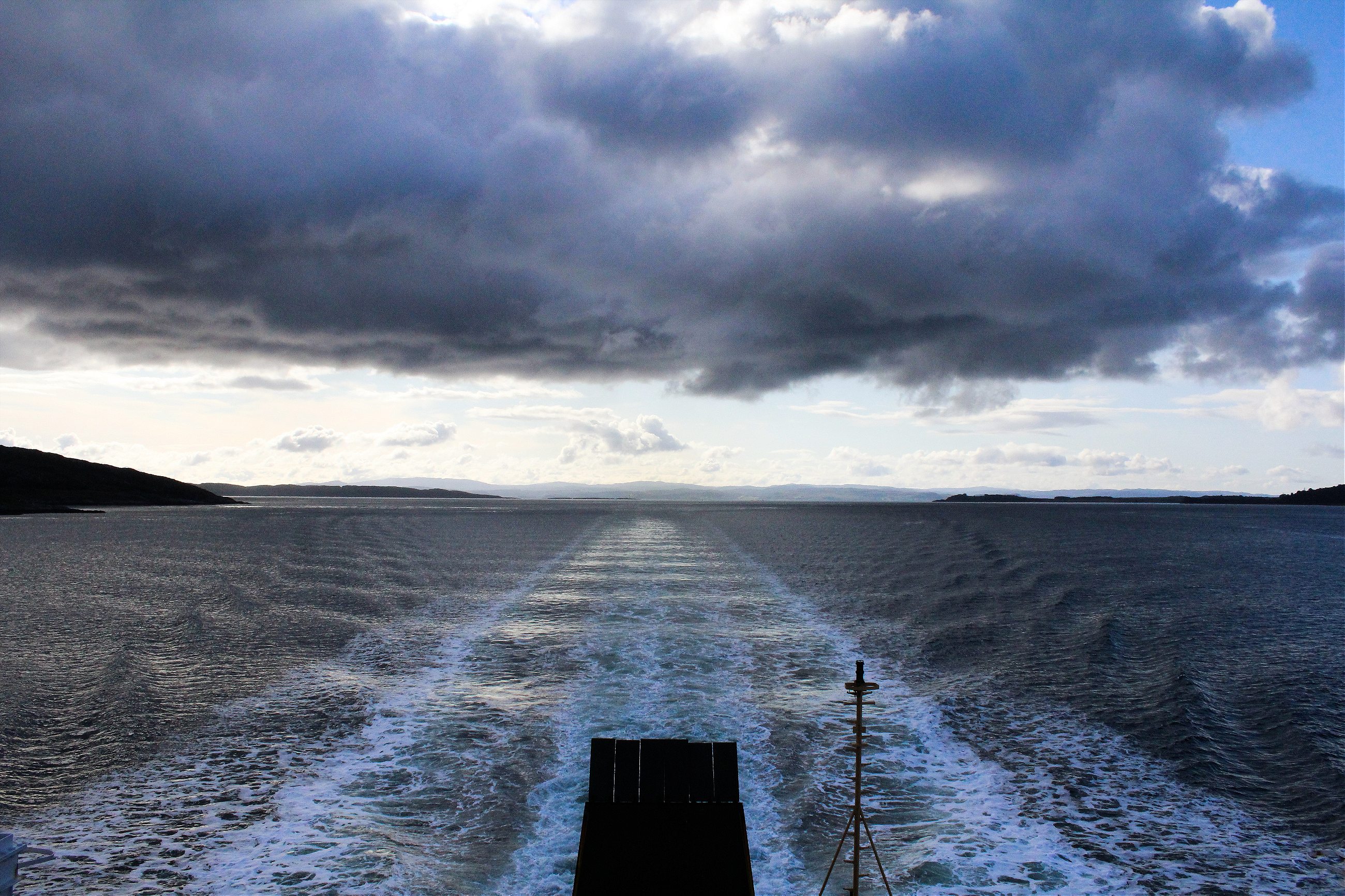
But as I made my way across Orkney—by bicycle, and slowed down by an ill-timed rush hour flat tire—I still hadn’t come across a vocal desire for full, definite island independence. Was the renewed micro-nationalism movement merely a small chorus of voices, good at getting press attention? How potent was the desire of the average Orcadian—or Shetlander, for that matter—to leave the United Kingdom? (Or, if it had gone that way, to leave an independent Scotland?) More importantly, what did the movement rest its case on?
One clear reason for having a distinct island state, invoked without question, is the unique Norse heritage.
As early as the 8th century, Vikings began to pillage—and then settle—both of the remote northern archipelagos. Backed by unrivaled marine power, bands of Norwegians were steadily gaining control of the entire swath of northern Scotland and the Western Isles, and Orkney and Shetland were perfect outposts from which raiding parties could launch. By 875, Norway had officially annexed the islands. The indigenous Picts were all but wiped out; whatever portion survived was essentially bred out by the dominant Scandinavian population.
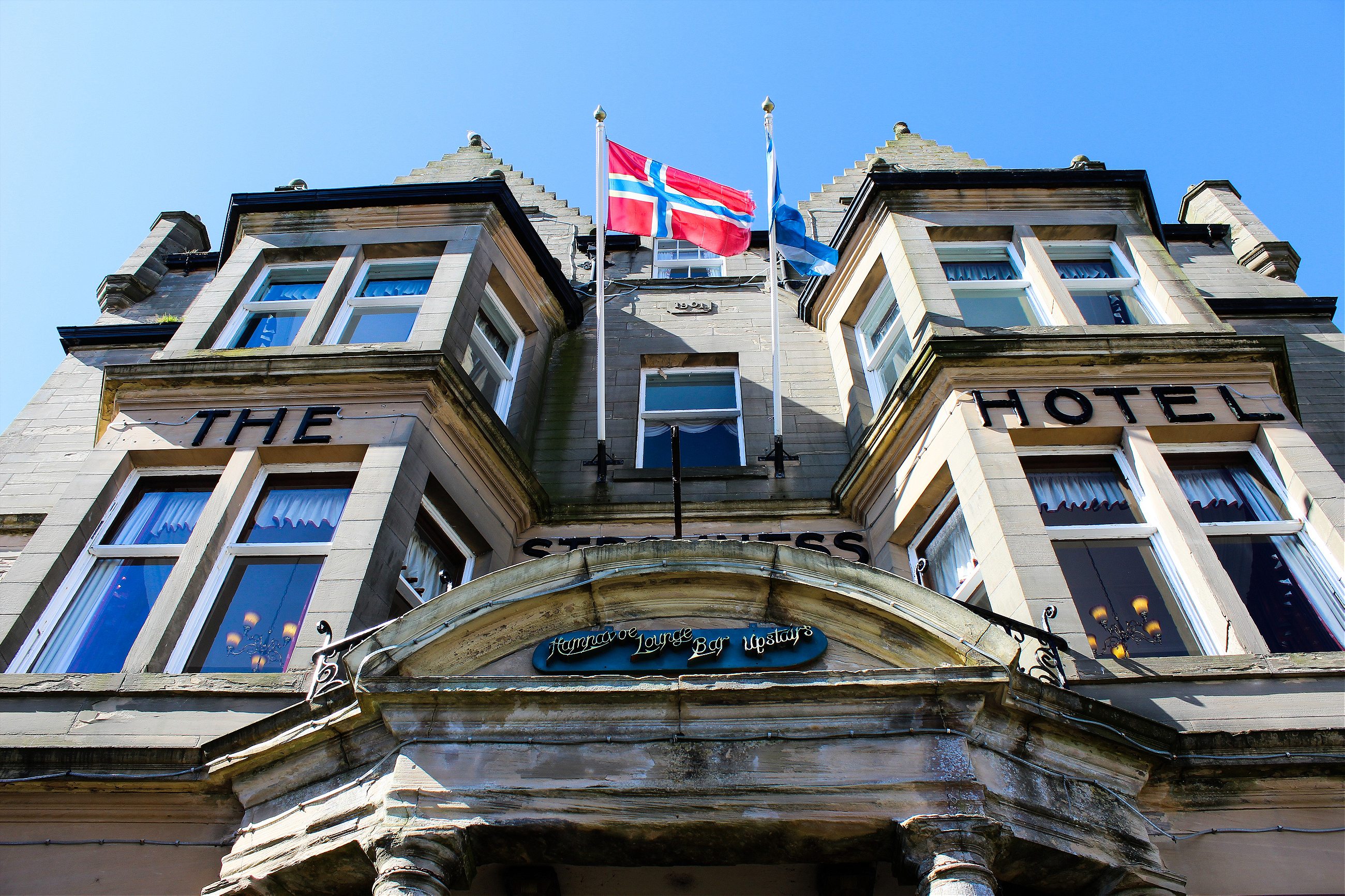
In other parts of Scotland, Viking influence waxed and waned, not allowing a solid Norse heritage to take root. The northern isles, however, were ruled for 600 years by Earls of Norway—twice as long as the current United Kingdom has been in existence, and more than enough time for a lasting heritage to grip the islands’ inhabitants. Even the circumstances of the eventual handover to Scotland guaranteed that the cultural distinctness of the islands wouldn’t go away. In 1468, Christian I of Norway gave the islands over as a temporary dowry for his daughter Margaret, who was to marry the Scottish King James III. But the collateral was never paid off. Although subsequent Norwegian kings could legally have claimed the islands back—for an unchanging sum of 210 kilograms of gold—no such deal was ever completed. The islands remained in limbo, unsure of allegiance, and were eventually folded into the Scottish realm by default.
The historical distinctiveness of the islands is unquestionable. But does it inform day-to-day activity or outlook in the 21st century? I asked Fiona MacInnes, who organized the pro-independence campaign for Stromness, about the effect of Norse heritage on Orcadians today. In an office decked with campaign paraphernalia, a pan-Scottish, not Scandinavian, theme dominated. She hesitated, then carefully proceeded, as if she were breaking some bad news.
“Orkney and Shetland have really captivated that as part of their marketing, really. There’s no doubt that the heritage exists. But it’s an identity that I think people like to subscribe to because it’s slightly more exotic than just being a plain old bloody Joe Bloke.”
If Viking heritage has been transformed into a brand, it’s working. For remote northern islands literally on the way to nowhere, Shetland and Orkney are visited by a disproportionate amount of tourists. Over 200,000 people visit the two archipelagos each year, spending around £47 million—substantial numbers considering the total population between the two is around 45,000. Along with the Western Isles, which also gains visitors by promoting its viking heritage, the islands have seen a 27% increase in tourists just in the last eight years.
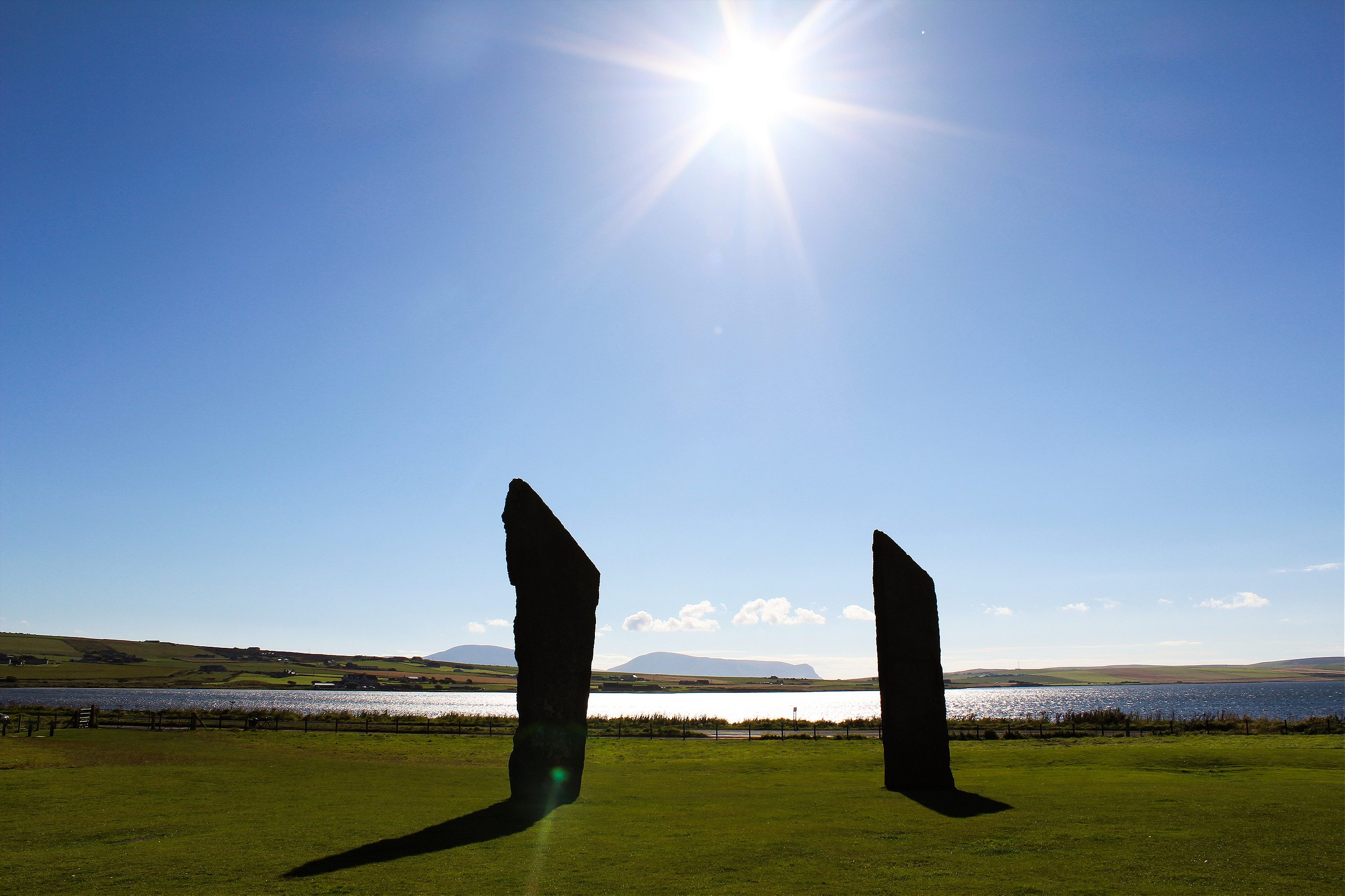
And while this heritage sets the islands apart, there is a fear that independence—in any of its forms—would disrupt the flow of tourists. Lynn Laughton owns the Curiosity Shop, a beautifully cluttered storefront in Kirkwall that grabs tourists gawking at St. Magnus Cathedral, the most imposing remnant of the Norse legacy, directly across the street.
“We rely a lot on tourism. So if we do get more expensive, because of independence, that would be a concern,” she told me. Her elderly co-worker nodded along, solemnly. A parakeet squawked from the corner. “We get a lot of holiday makers and cruise ships coming in here. It would be a big concern.”
“If Scotland votes Yes,” I asked, “Do you think people from the rest of the United Kingdom would stop coming?”
“I think they would, yes. I think it would make a big divide”—she paused, briefly—”a bigger divide.”
Viking heritage, then, seems to function as a tourist-lure incredibly well within the current framework of the United Kingdom. Take, for example, the Up Helly Aa festival, which is held every January in Lerwick, Shetland. It is almost futile to try to describe the phenomenon. A thousand citizens transform into helmeted, plundering Norsemen. A replica Viking longboat is dragged through town and engulfed in flames. Songs are growled into the night, as processions of torchbearers wind their way through the town.
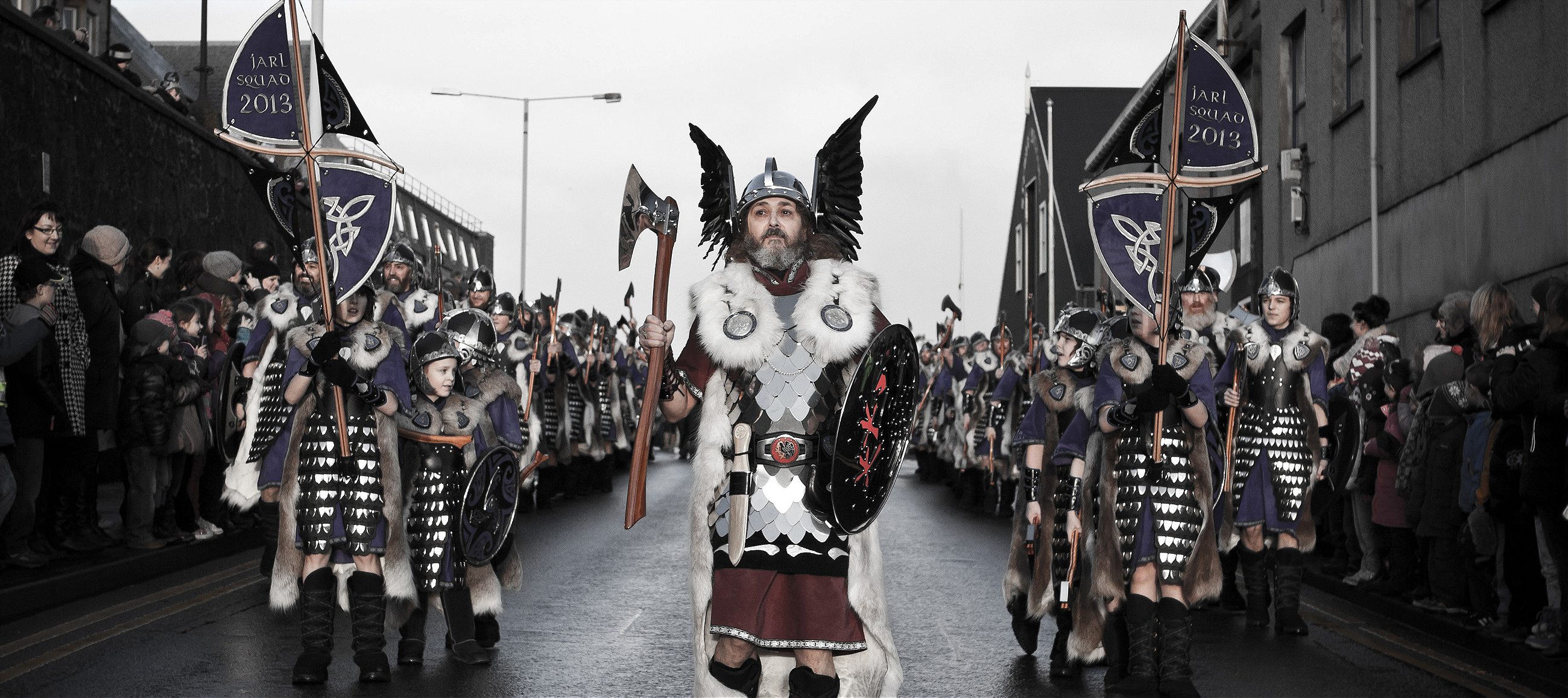
The event has only grown bigger in the last century, providing a mid-winter boost to the local economy. In theory, it would be the foremost expression of the Viking heritage that micro-nationalists tout as the reason to go independent. But in practice, it has thrived in a British system that has always been a pluralistic patchwork of identities and regional loyalties.
With these economic realities becoming clearer, as the independence referendum grew nearer, the surge of micro-nationalism began to wane. Both the Scottish and British governments offered plans for more island powers post-referendum, a tactical move to quell the agitation and simultaneously win votes. Both sides promised to cut rates on ferry transportation to and from the mainland, reform land ownership laws to make the Crown Estate more accountable and give more local influence over fisheries. But perhaps most significantly, the petition for an island-specific referendum was shot down by the Scottish Parliament, which claimed that necessary attention was already being paid to address the micro-nationalist grievances. There would be no second referendum.
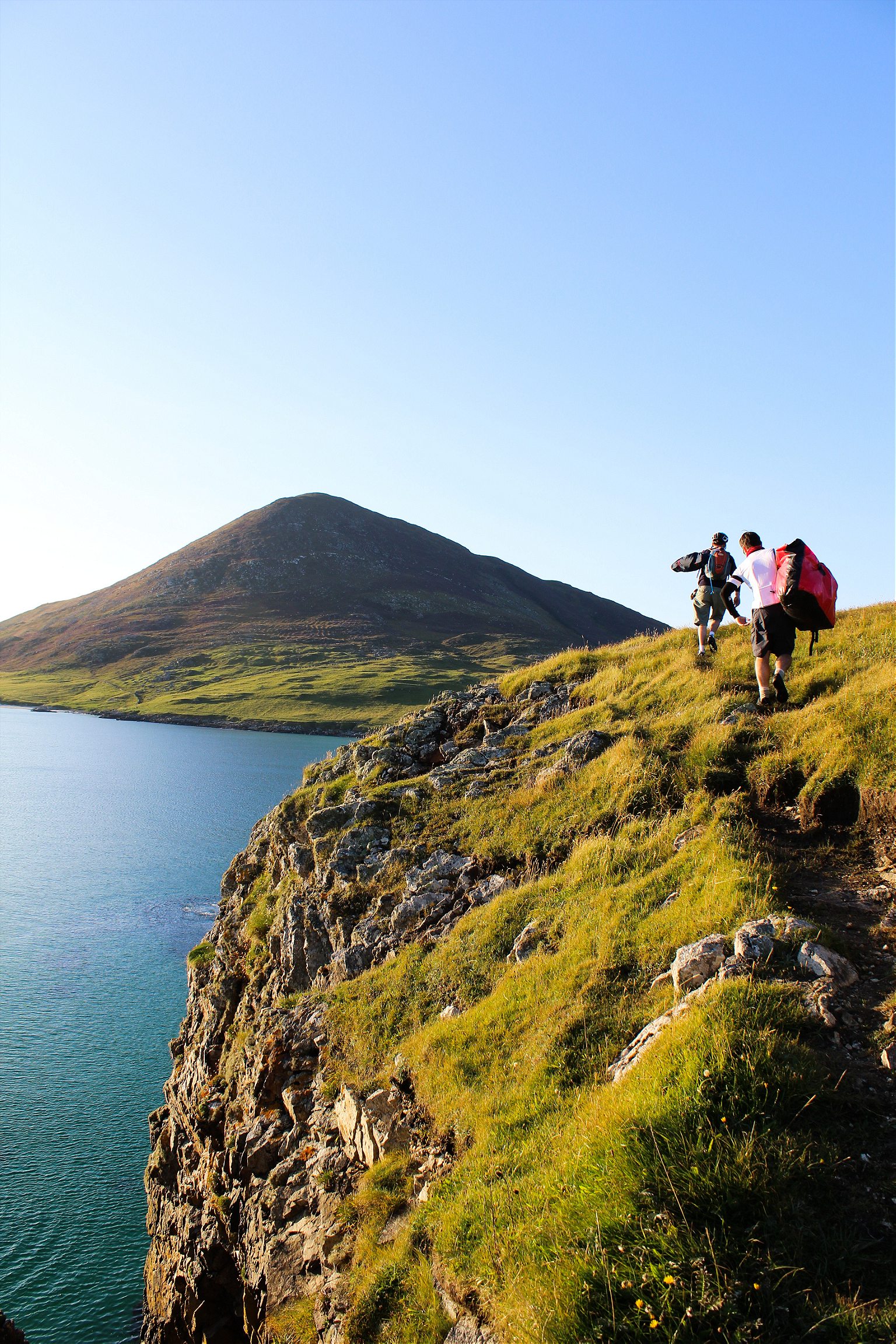
On my last night in Orkney, I caught an independence debate in Kirkwall, where one audience member asked the panel of politicians what they thought of Norway swooping in and perhaps taking the islands under its wing, if everything goes south after the September 18 vote. A wave of laughter swept through the room, and not one of the panelists offered a response.
After a week and a half in Orkney and Shetland, I found myself back in Edinburgh, somehow having convinced the right people to give me media accreditation for the referendum’s ballot count. While each local authority was having its own regional count, all of the official results were being announced from the Edinburgh location, a monstrous hangar of a building usually reserved for cattle auctions. Orkney and Shetland, with their minuscule populations, were expected to be announced first.
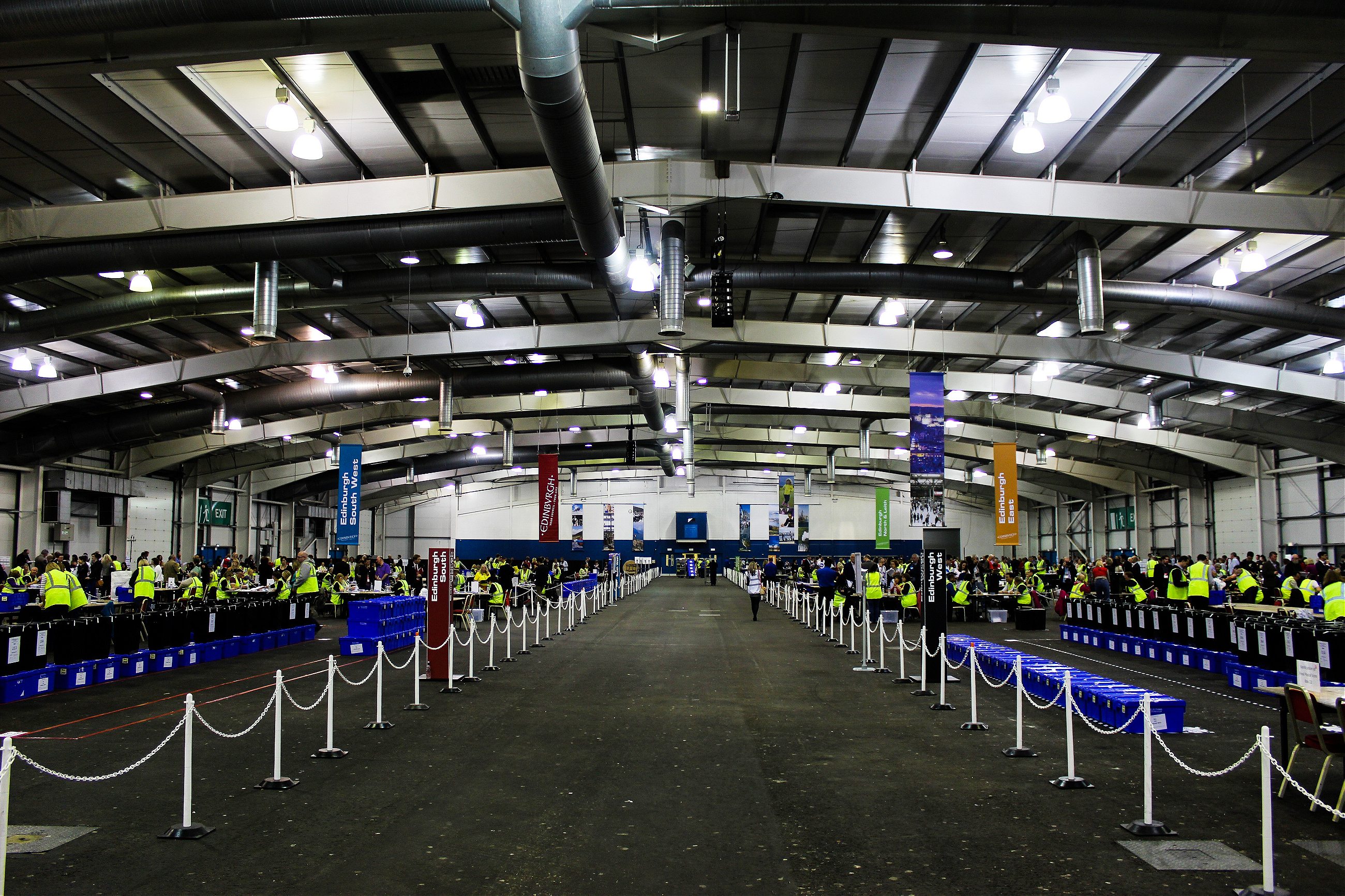
As polls closed and ballots began their journeys to the counting tables, journalists and politicos began the prolonged period of waiting, either frantically conducting interviews or biting fingernails to pass the time. At midnight, turnout numbers were announced, to mild applause. At 1am, rumors of the announcement began to circulate. Finally, at 2:15am, Orkney’s numbers came through. It was a blowout: over 10,000 votes against independence, versus 4,000 in support. The room’s changing mood was palpable; it should have been closer. Shetland, a half-hour later, reinforced the results, with nearly 10,000 No votes overpowering 5,600 Yesses.
For most parts of Scotland, the rejection of independence was a national decision, with national consequences. For Shetland and Orkney, the reverberations will be far more local. The arc of the micro-nationalist movement—beginning with John Goodlad’s band of activists—is long, and can easily feed off of the failure of Scottish independence. If the UK government doesn’t follow through on its promises of more local powers, the backlash will galvanize islanders to more extreme channels. The strategic position of Shetland vis-a-vis North Sea oil will be an invaluable bargaining chip until the black gold runs dry. That second referendum, put down this time around, will not be easy to deny the next time if promises of local control aren’t kept by the union.
But for the moment, it looks like the UK’s last Vikings will remain, as it were, in the UK. As John Goodlad wrote to me in an email just after the last votes were counted, “We did not make it.”
